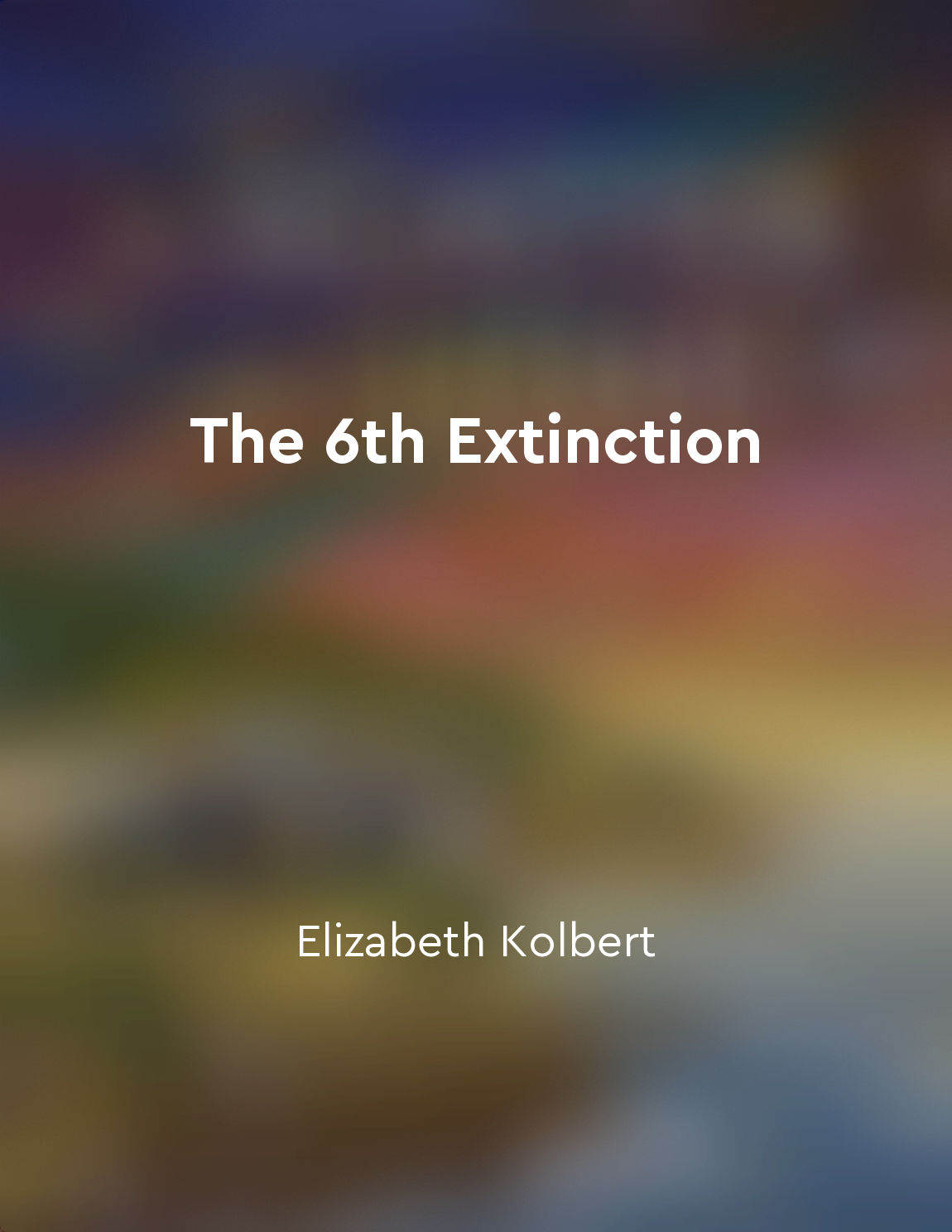Restoring balance is possible through conservation efforts from "summary" of The Serengeti Rules by Sean B. Carroll
Restoring balance in nature is not a far-fetched dream. Through targeted conservation efforts, it is indeed possible to bring back equilibrium to ecosystems that have been disrupted by human activities. The key lies in understanding the fundamental principles that govern these systems and using that knowledge to guide our actions. By studying the interactions between different species and the factors that regulate their populations, scientists have uncovered the rules that dictate the functioning of ecosystems. These rules provide a framework for understanding how disturbances, such as the introduction of invasive species or the depletion of resources, can throw these delicate systems off balance. Conservation efforts that aim to restore equilibrium often focus on reintroducing key species or controlling the populations of others to mimic the natural checks and balances that exist in healthy ecosystems. By restoring these interactions, we can help revive the intricate web of life that sustains biodiversity and ensures the resilience of the ecosystem as a whole. The success of conservation efforts in restoring balance is exemplified by the remarkable recoveries observed in ecosystems around the world. From the revival of fish populations in marine reserves to the resurgence of vegetation in protected areas, these examples demonstrate the power of targeted interventions guided by the Serengeti Rules.- The concept that restoring balance is possible through conservation efforts offers hope for the future of our planet. By harnessing the knowledge gained from scientific research and applying it with care and precision, we can work towards a healthier, more sustainable relationship with the natural world. In doing so, we can not only protect the diversity of life on Earth but also secure our own well-being for generations to come.
Similar Posts
Resource depletion triggers social conflicts
Resource depletion has been a key factor in the collapse of numerous societies throughout history. When a society exhausts its ...
Justice and fairness are fundamental
Justice and fairness are fundamental principles that underpin a society's ability to function and thrive. Without these guiding...
The future of our planet depends on our ability to work together for a sustainable future
In the grand scheme of things, the fate of our planet rests on our shoulders. Our actions today will have a profound impact on ...
Nature as a teacher
Nature, in all its complexity and beauty, has long been seen as a source of inspiration and wisdom. Its intricate ecosystems, p...

Scientists are working to understand and combat the extinction crisis
Scientists are on the front lines of the battle against the extinction crisis, working tirelessly to unravel its complexities a...
The Anthropocene is the current geological epoch marked by human influence
The Anthropocene is a term that has been proposed to define the current geological epoch in which we find ourselves. It signifi...

The future of biodiversity depends on the choices we make today
In the face of the ongoing crisis of biodiversity loss, it is crucial to recognize the impact of our present actions on the fut...
Nature has a delicate balance that must be respected
The natural world is a complex web of interconnected relationships, where each species plays a crucial role in maintaining the ...

